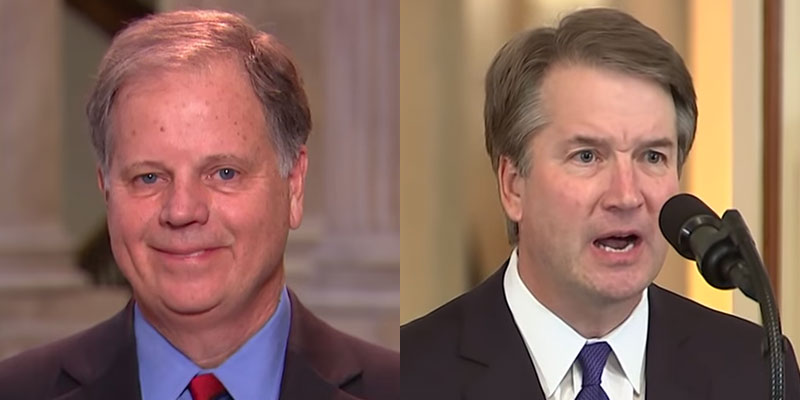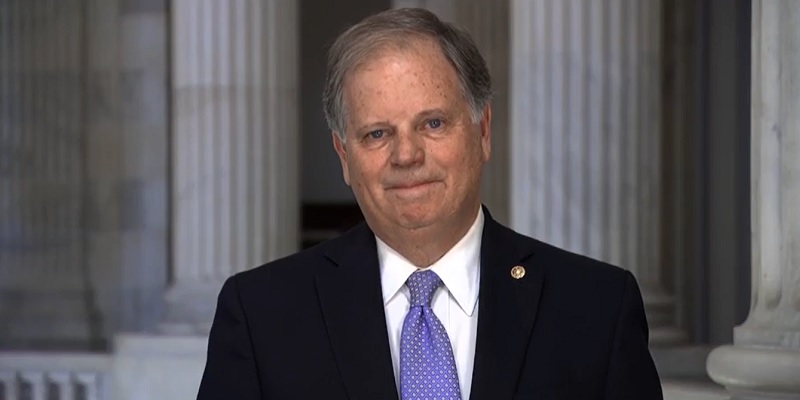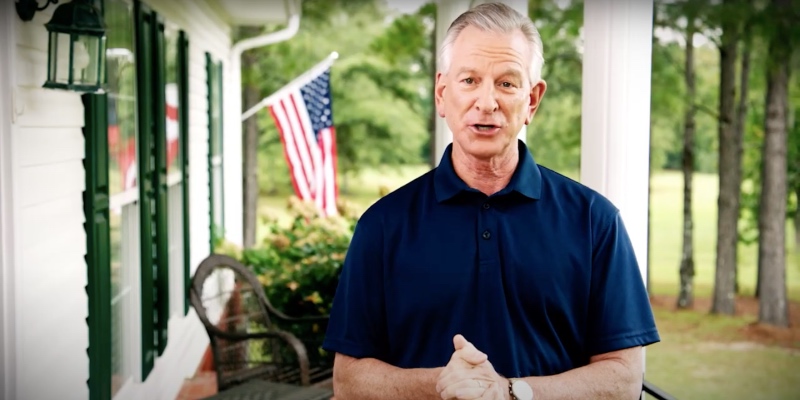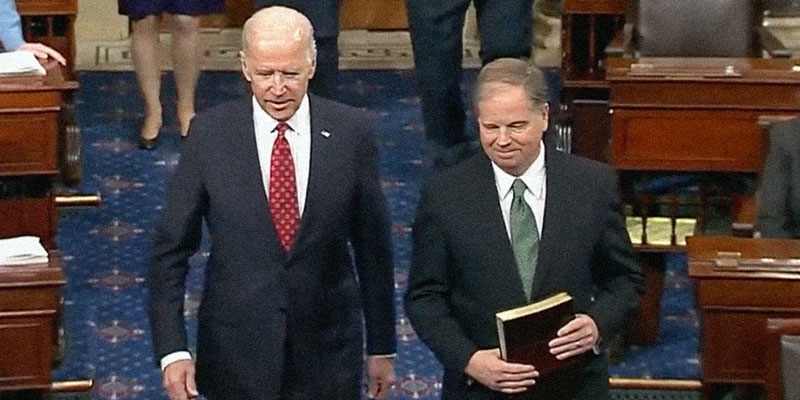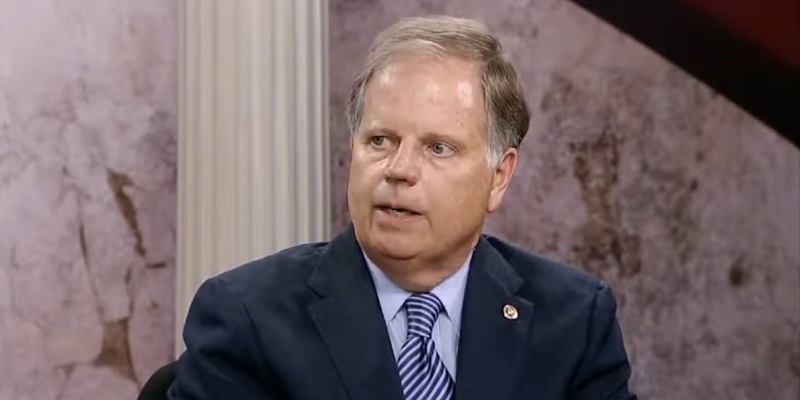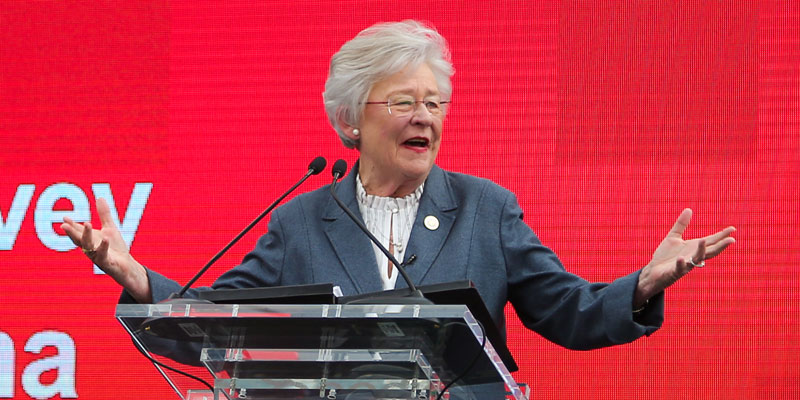Sen. Doug Jones (D-Mountain Brook) is keeping mum on Supreme Court nominee Brett Kavanaugh, but he has spoken — through his votes — on other judicial confirmations.
A dozen appellate court judges have been confirmed since Jones took office in January after winning a special election to finish the term of U.S. Attorney General Jeff Sessions. Jones voted “yes” on six of those nominations, opposed five and did not vote on the 12th.
The senator has not made public statements about any of those votes, and his office did not respond to inquiries. Until he makes a declaration about Kavanaugh, the senator’s voting record offers the best guide to his thinking. He voted with a majority of his Democratic colleagues on all but two nominations.
Here is a closer look at those votes:
The “yes” votes
Jones voted to confirm Mark Bennett to the 9th U.S. Circuit Court of Appeals; Joel Carson III to the 10th U.S. Circuit Court of Appeals; Michael Scudder and Amy Eve to the 7th U.S. Circuit Court; Kurt Engelhardt to the 5th U.S. Circuit; and David Stras to the 8th U.S. Circuit.
Bennett was an unusual case. Every Democrat, and Democratic-leaning independents Bernie Sanders of Vermont and Angus King of Maine, voted for him, while 27 Republicans voted “no.” Republicans who opposed Bennett objected to his record on the Second Amendment.
Scudder and Eve had near-unanimous support. Carson’s nomination split the Democratic caucus. Jones joined 26 other Democrats in supporting him, while 21 opposed him.
Jones was one of 13 Democrats who voted to confirm Engelhardt in May. Opponents raised concerns about rulings he has made in sexual harassment lawsuits.
Jones lined up with Sens. Joe Donnelly (D-Ind.), Heidi Heitkamp (D-N.D.), Joe Manchin (D-W.Va.), Amy Klobuchar (D-Minn.) and Mark Warner (D-Va.) in voting to confirm Stras. Like Jones, Donnelly, Manchin and Heitkamp are feeling heat as Democrats representing red states. Most Democrats voted “no.”
The “no” votes
Jones voted against Britt Grant to serve on the 11th Circuit; Andy Oldham for the 5th Circuit; John Nalbandian for the 6th Circuit; Michael Brennan for the 7th Circuit and Kyle Duncan for the 5th Circuit.
No Democrats voted for Oldham or Brennan. Only Heitkamp and Sen. Jon Tester (D-Mont.) voted for Grant, and only Donnelly, Heitkamp and Manchin voted for Nalbandian. And Manchin was the only Democrat to vote for Duncan.
The non-vote
Jones was not present for the Feb. 27 vote to confirm Elizabeth Branch to the 11th Circuit. Her nomination split Democrats, with 25 vote “yea” and 23 voting “nay.”
The record would suggest that if Kavanaugh draws just a few Democratic votes, as many experts predict, it is unlikely Jones would be one of them. He bucked his party only twice on appeals court votes.
Unlike Manchin, Heitkamp and Donnelly, he has declined to meet with the nominee ahead of hearings scheduled to begin Sept. 4.
Then again, experts said, the Supreme Court is different.
“I really don’t think it offers a clue. … Court of Appeals nominations just aren’t as important as a Supreme Court nomination,” said John Carroll, a former federal magistrate judge who now serves as a professor at Samford University’s Cumberland School of Law in Birmingham.
Jones has come under intense and competing pressures. On the one hand, polls suggest a majority of his constituents favor confirmation. And although he is not up for re-election this November, he will be on the ballot in two years. The Judicial Crisis Network and other conservative groups are spending millions of dollars targeting Jones and other red state Democrats with pro-Kavanaugh advertising.
On the other hand, activist progressives have declared war on the nomination, and Senate Minority Leader Chuck Schumer (D-N.Y.) has leaned on moderates in his caucus to at least hold off on announcing support for Kavanaugh until he sews up commitments from every Republican.
A woman at the senator’s town hall meeting in Birmingham this week tossed a pair of stuffed lips toward him and declared, “You can kiss my ass if you vote ‘yes.’”
Eric Ostermeier, a political science researcher at the University of Minnesota, said senators often can escape scrutiny of their votes on lower-court judges in a way they cannot with the Supreme Court
“He can’t hide when it comes to vote for a Supreme Court position,” said Ostermeier, who runs a website called Smart Politics. “That will be covered everywhere … and that will be a salient issue for his opponent if he votes against it.”
Carrie Severino, chief counsel and policy director of the Judicial Crisis Network, said she does not know what the senator’s votes on appellate nominations predict about Kavanaugh.
“We’ll see,” he said. “Unfortunately, Sen. Jones on many things has decided he wants to align himself with Chuck Schumer and the liberal wing over his own constituents.”
Severino added that Alabama voters are not likely to forget how Jones votes on Kavanaugh.
“This is a very significant opportunity,” she said. “Is he someone who wants to be independent, or knee-jerk Schumer?”
Carroll, the Cumberland School of Law professor, said the politics surrounding court nominations are a far cry for the congenial atmosphere that prevailed when he started practicing law in 1975.
“Back then, it was, is this person qualified?” he said.
@BrendanKKirby is a senior political reporter at LifeZette and author of “Wicked Mobile.”




